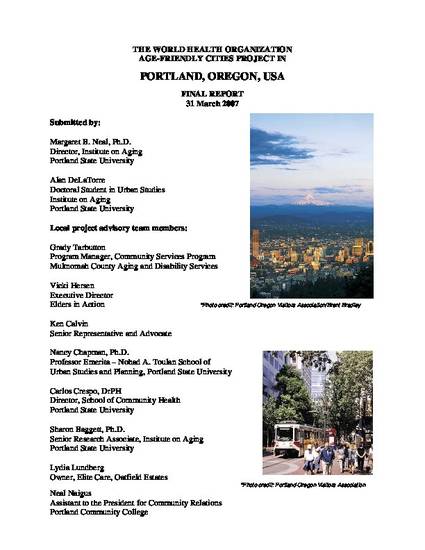
- Older people -- Housing -- Oregon -- Portland,
- Older people -- Services for,
- Older people -- Transportation -- Oregon,
- Older people
The older population is increasing in size in Portland, the state of Oregon, the United States, and the rest of the world. Our cities and regions are vital to the support of this demographic shift through the provision of quality built environments, services, and social, cultural, and civic engagement opportunities promote healthy and active aging.
Over the next 30 years, the Portland-Vancouver metropolitan area will see dramatic growth in the proportion of the population that is aged 65 and older. Although the total population will increase by 47 percent, the 65+ population will more than double, growing by over 137 percent, to comprise 17 percent of the population in 2030, compared to 10.5 percent in 2000. Fueling this increase will be the aging of the baby boomers.
As a city and a region, changes that will enhance the quality of life, independence, and well-being of our aging population can be made. These include addressing important needs that are identified, and taking advantage of assets and resources that an older and experienced population provides.
Available at: http://works.bepress.com/margaret_neal/5/

This is the Final Report.
The Summary of Findings is available below in the additional files.